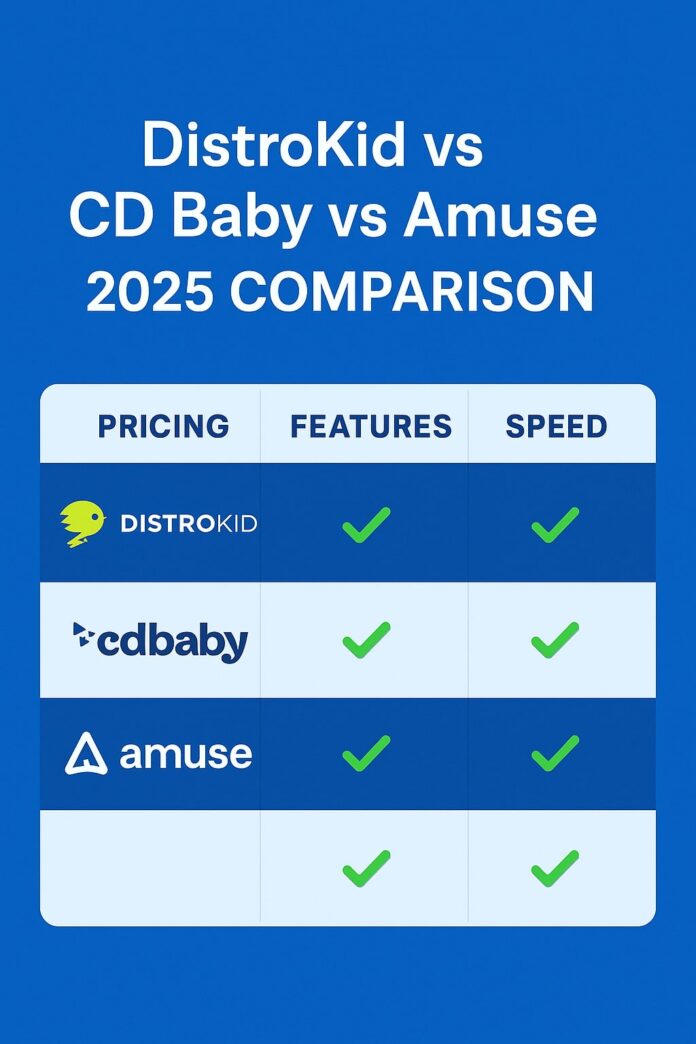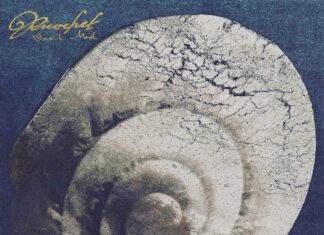
Why This Comparison Matters in 2025
Pricing Snapshot
- DistroKid – Plans start at $24.99/year for unlimited uploads. Higher tiers allow more artists and extra features.
- CD Baby – One-time fees: about $9.99 per single and $14.99 per album. No annual subscription required.
- Amuse – Subscription tiers from roughly $1.99–$5.00/month (billed annually), offering fast delivery and analytics.
Tip: If you release more than three or four singles a year, DistroKid’s unlimited plan usually saves money compared to per-release fees. For occasional releases, CD Baby may be cheaper long-term. Amuse fits neatly between the two.
Features Comparison
Upload Limits & Cost Model
- DistroKid: Unlimited uploads under annual subscription; great for prolific artists.
- CD Baby: Pay once per release; perfect for artists with smaller catalogs.
- Amuse: Tiered subscriptions; unlimited releases within each plan.
Revenue & Commissions
All three distributors allow you to keep most or all of your streaming royalties. Some services, such as publishing administration or sync pitching, may have additional commissions or revenue shares — always review the fine print for those add-ons.
Delivery Speed & Store Reach
- DistroKid: Known for rapid delivery to stores and quick approval times.
- CD Baby: Broad coverage (150+ outlets) and built-in services like Shazam and YouTube Content ID.
- Amuse: Fast distribution via web and mobile with clear progress tracking.
Extras & Artist Tools
- DistroKid: Add-ons like team splits, instant pre-saves, video distribution, and data dashboards.
- CD Baby: Publishing administration, sync licensing, and YouTube Content ID built-in for eligible releases.
- Amuse: Mobile analytics, fast payouts, and tiered upgrades with artist advances.
Reach & Store Coverage
All three platforms distribute to major DSPs such as Spotify, Apple Music, Amazon Music, Tidal, and TikTok. The main differences are speed-to-store and exclusive partnerships. DistroKid and Amuse focus on fast delivery, while CD Baby emphasizes wider integration with discovery and catalog systems.
Pros & Cons Overview
DistroKid
- Pros: Unlimited uploads, quick delivery, advanced tools, perfect for frequent releases.
- Cons: Annual renewal required; optional add-ons can increase total cost.
CD Baby
- Pros: Pay-per-release simplicity, solid catalog services, strong publishing and YouTube integration.
- Cons: Can get expensive for frequent releasers; commission on certain services.
Amuse
- Pros: Affordable subscription tiers, mobile-first interface, fast insights, easy to use.
- Cons: Feature set varies by plan; fewer advanced tools on lower tiers.
Who Should Choose Which?
- Frequent releasers (monthly or quarterly): Go with DistroKid — unlimited uploads and fast delivery make it ideal.
- Occasional artists: Choose CD Baby — no recurring costs and strong one-time release options.
- Budget-conscious beginners: Pick Amuse — affordable pricing and mobile distribution are perfect for starters.
Checklist Before Signing Up
- Cost model: Annual subscription vs per-release payment.
- Stores & delivery speed.
- Royalties & commissions on extras.
- Additional features: YouTube, publishing, or sync options.
- Support and account control for multiple artists.
- Read fine print: rights, exclusivity, removal fees, and payout rules.
Final Thoughts
DistroKid shines for active, independent artists who release often and want an all-you-can-upload model. CD Baby remains a top pick for musicians who release occasionally and want professional admin tools. Amuse offers a flexible, mobile-first experience with affordable plans for emerging artists.
Ultimately, the “best” distributor in 2025 depends on your release schedule, budget, and how hands-on you want to be with your catalog. The good news: all three platforms have matured into excellent options for independent musicians worldwide.





















 🔥 Limited Time: Get 55% OFF All Plans - Ends in:
🔥 Limited Time: Get 55% OFF All Plans - Ends in: